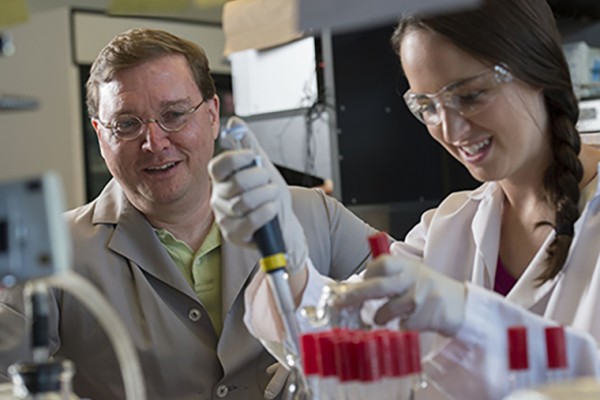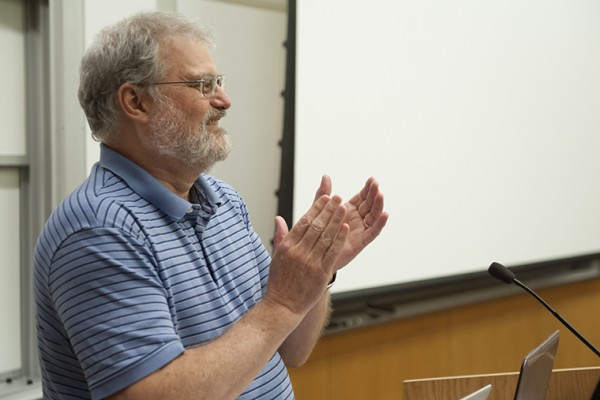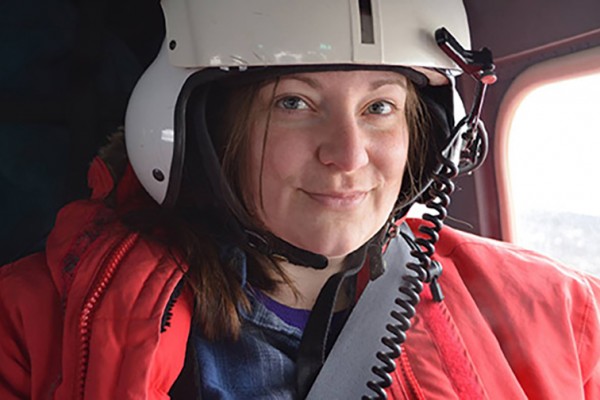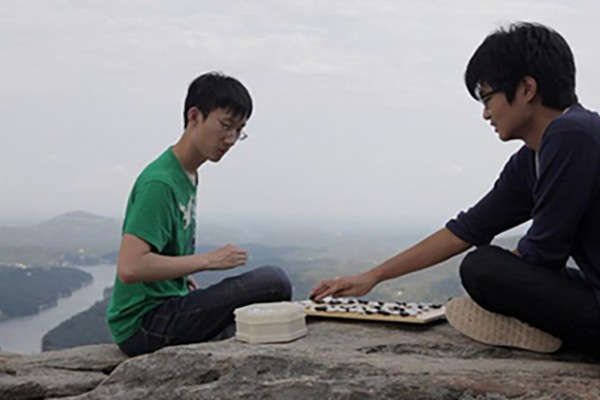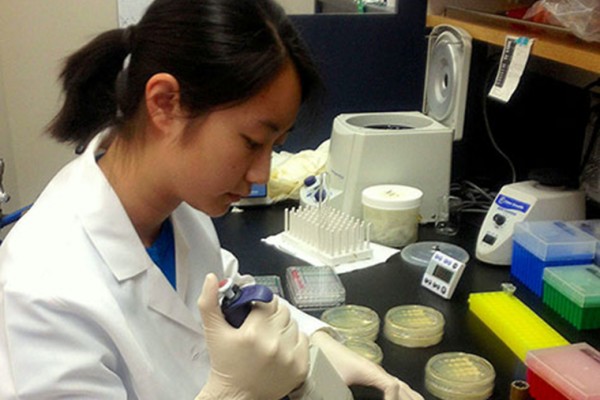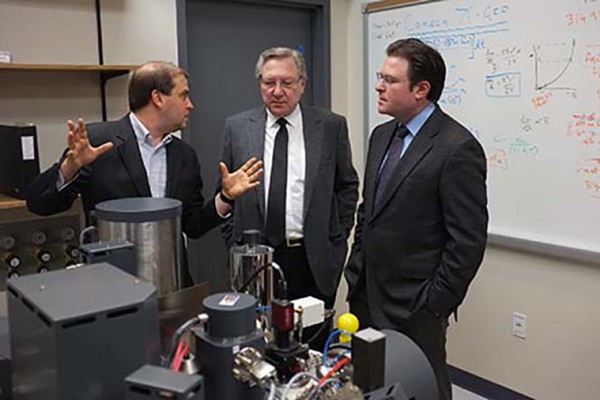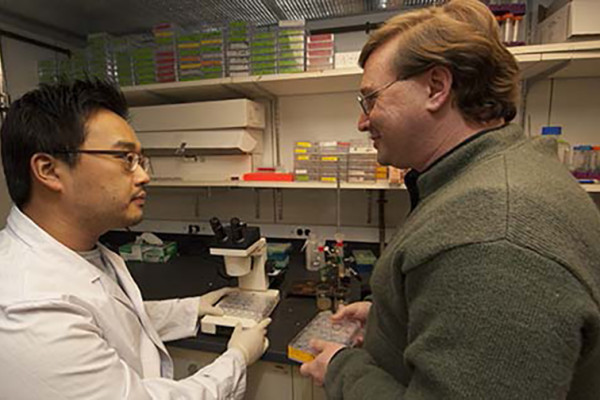Schaal named to national Foundation for Food and Agricultural Research board
Barbara Schaal, PhD, dean of the Faculty of Arts & Sciences at Washington University in St. Louis and the Mary-Dell Chilton Distinguished Professor, is one of 15 scientists from academia and industry named to the new Foundation for Food and Agricultural Research. U.S. Agriculture Secretary Tom Vilsack announced the foundation July 23.
Washington University’s Joseph Jez is one of 15 ‘million dollar professors’
Joseph Jez, PhD, co-director of the plant and microbial biosciences graduate program at Washington University in St. Louis, is one of 15 professors nationwide to receive a $1 million HHMI grant to bring the creativity he has shown in the lab to the undergraduate classroom. He plans to use the grant to establish a two-year program called the Biotech Explorers Pathway that will introduce entering students to both the science and business of biotechnology.
Slaying bacteria with their own weapons
A novel antibiotic delivery system would exploit small molecules called siderophores that bacteria secrete to scavenge for iron in their environments. Each bacterium has its own system of siderophores, which it pumps across its cell membrane
before releasing the iron the siderophores hold. If an antibiotic were linked to one of these scavenger molecules, it would be converted into a tiny Trojan horse that would smuggle antibiotics inside a bacterium’s cell membrane.
PARC wins renewed funding for photosynthetic research
The Department of Energy has awarded the Photosynthetic Antenna Research Center (PARC) $14.4 million for continuing research on natural and bio-inspired systems for harvesting the sun’s energy. The center, which is hosted by Washington University in St. Louis, was one of 32 projects selected for funding from among more than 200 proposals and one of only 22 to receive second-round funding.
Obituary: Albert Baernstein, professor emeritus of mathematics, 73
Albert Baernstein, professor emeritus of mathematics in Arts & Sciences at Washington University in St. Louis, died Tuesday, June 10, 2014. He was 73.
As the heat of summer settles on St. Louis, here’s a gust of cold air from Antarctica
Washington University in St. Louis postdoctoral research associate Aubreya Adams went to Antarctica in January and February 2014 to help with routine maintenance of seismic stations on the West Antarctic ice shelf. But nothing in the southern continent is ever routine. In her short stay, she experienced extreme weather, saw a rare mirage, visited bizarre ice vents on the volcanic Mount Erebes and saw first hand the effects of the warming that recently made front page news in The New York Times.
Grad student co-directs film about the game of Go
“The Surrounding Game” is a documentary film about the game of Go co-directed by WUSTL graduate student Cole Pruitt. It follows two of America’s top young players as they compete to obtain professional rank in this subtle and elegant game. Implicit in the story is a larger question: Can a game this subtle and difficult, which has been pursued as a fine art in Asia for millennia, be transplanted to America,
which does not have the culture or the training system to support it?
Huang wins this year’s Spector Prize
The Spector Prize, first awarded in 1974, recognizes academic excellence and outstanding undergraduate achievement in research. Students are nominated by their research mentors for outstanding research that has made substantial contributions to a field. This year, the prize has been awarded to Deborah Huang, who plans to
graduate this month with a major in biochemistry and molecular biology
and a minor in public health.
SIMS laboratory dedicated
Last week, the university dedicated the Grossman Family SIMS Laboratory in Rudolph Hall. The build-out of the lab was funded by a gift from the family of WUSTL alumnus Matthew Grossman. The space houses a state-of-the-art secondary-ion mass spectrometer that will be used primarily for the analysis of geological samples but also will be available to members of the newly founded Institute of Materials Science and Engineering to study problems in the analysis and design of materials.
A protein key to the next green revolution sits for its portrait
Scientists are beginning to talk about re-engineering crop plants so that, like legumes, they will have on-site nitrogen-fixing systems, either in root nodules or in the plant cells themselves. The structure of a protein called NolR that acts as a master off-switch for the nodulation process, published in the April 29 issue of PNAS, brings them one step closer to this goal.
View More Stories

